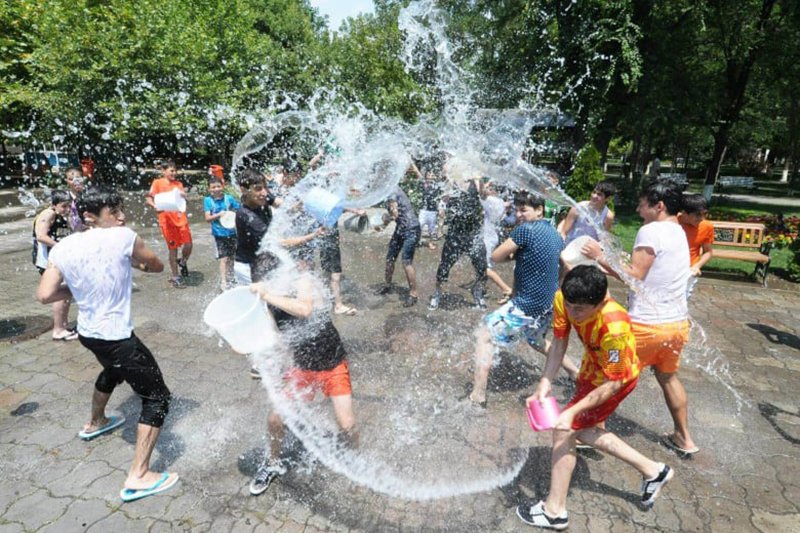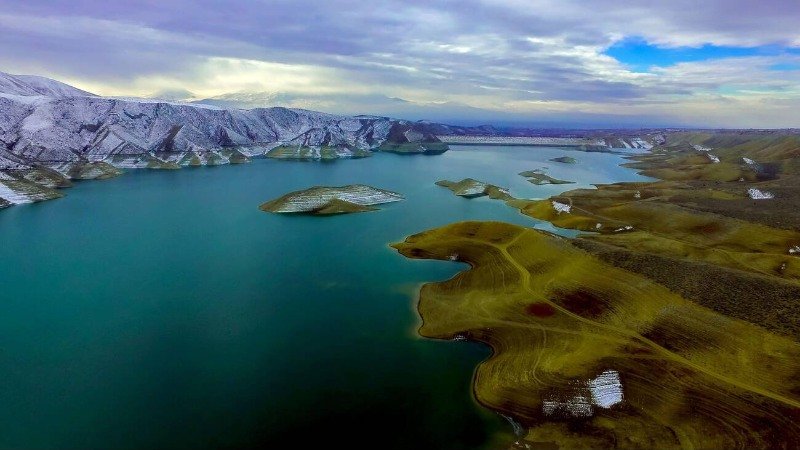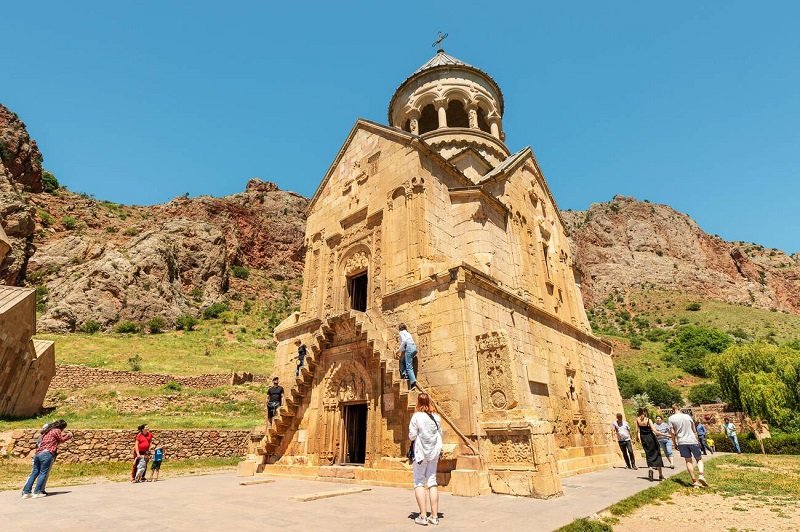Vardavar Festival is one of Armenia’s oldest festivals, reflecting centuries of history and tradition. The celebration brings together ancient legends, Christian beliefs, and folk customs. This festival is closely linked to the story of Noah, the hero of the Great Flood, and to pre-Christian Armenian deities such as Astghik and Anahit.
Follow Armenic Tours to know more about Vardavar Festival and explore how you can join this unforgettable celebration.
The Origins of Vardavar
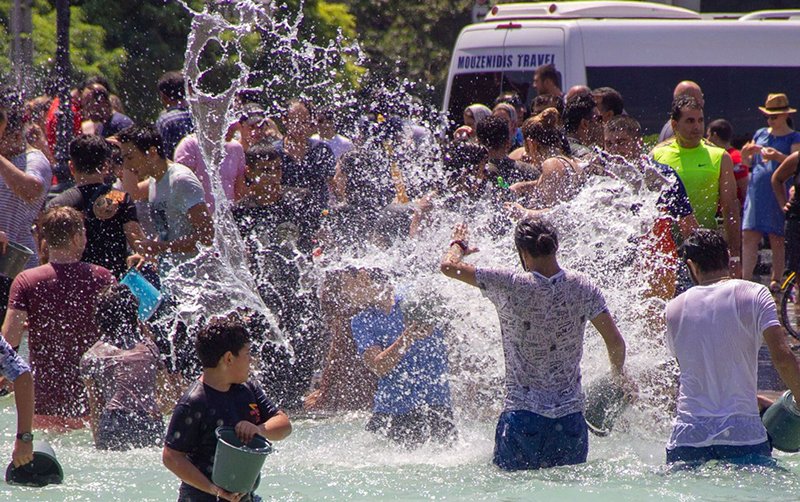
According to tradition, after the Great Flood, Noah’s Ark landed on Mount Ararat. As a memory of their salvation, Noah’s family began pouring water on each other. Over time, this practice evolved into a festival celebrating life, nature, and purification.
The Armenian Apostolic Church officially marks the festival 98 days after Easter. It usually falls between June 28 and August 1, depending on the year. In some regions, people celebrate it on the Sunday following July 22.
Vardavar’s Pre-Christian Roots
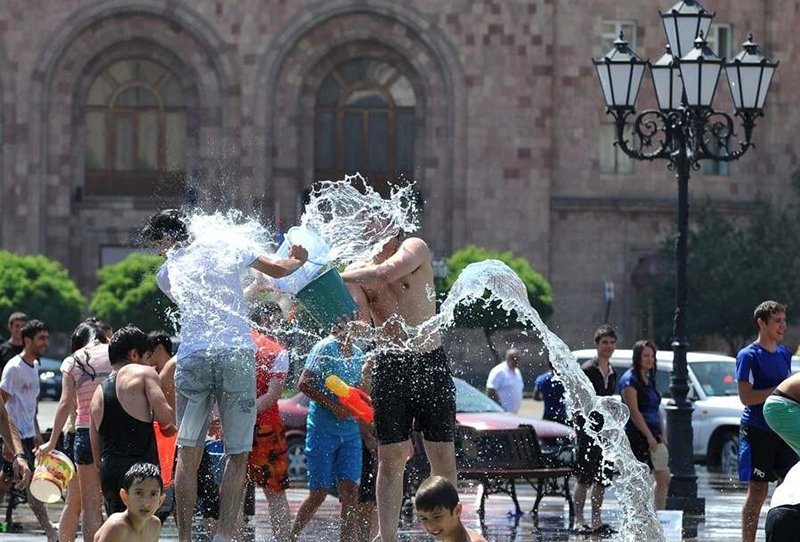
Long before Christianity, Vardavar was dedicated to Astghik, the goddess of love and beauty. The name “Vardavar” does not come from the word “rose” but is believed to mean “sprinkling water.” Some sources also link it to the word “fire,” symbolizing the heat of July and the need for water to cool the earth and the body.
People believed that the festival’s water had healing powers and could protect them from evil and illness. In ancient times, water games happened near rivers, lakes, and springs, not in the streets as seen today.
Water as a Symbol of Purification

In the plains, the central ritual was pouring water on each other without considering age, gender, or social status. Everyone happily accepted the splashes, symbolizing the cleansing of mistakes and misdeeds.
In the cooler mountain regions, Vardavar Festival was celebrated with long pilgrimages to remote monasteries, especially St. Karapet Monastery in Mush. People would bring wheat stalks to church, praying for a good harvest. They also exchanged flowers, particularly roses.
Vardavar’s Connection to Love and Marriage
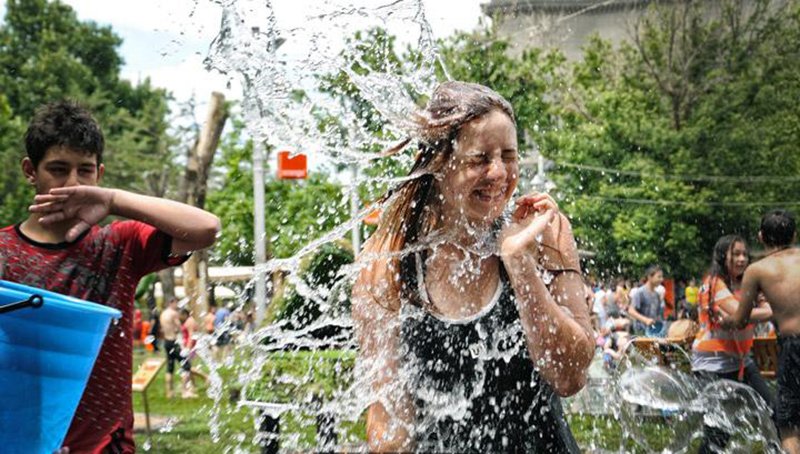
The festival has always been linked to love and social interaction. Young men and women used Vardavar as a rare chance to meet freely. Boys would show their skills through games, hoping to impress girls. In some areas, releasing doves became a symbol of love and good fortune. If a dove circled a girl’s house three times, it was seen as a sign she would marry that autumn.
Traditional Vardavar Festival Celebrations
In Tavush, girls would collect yellow flowers called “vrtiveri” and secretly leave flower crosses in the yards of their loved ones the night before the festival. Engaged girls would send decorated floral gifts to their fiancé’s family, often covered with sweets.
A special tradition called “Khndoom” involved decorating a cross-shaped wooden stick with cucumbers, apples, and flowers, symbolizing joy and gratitude. Village dances and games followed, with playful competitions between boys and girls, including singing duels that often lasted until dawn.
In some regions, it was forbidden to eat apples before Vardavar. People would roast the season’s first apples in bonfires, which were an essential part of the celebration.
Vardavar Festival in Modern Times

Today, many Armenians continue to celebrate Vardavar by splashing water, gathering with family, and visiting their hometowns. Young Armenians, nationalists, and those practicing ancient traditions still honor Astghik with special ceremonies, especially in Garni.
The festival remains a powerful event that brings people together, reconnects them with their roots, and celebrates purification, love, and unity.
What Date is Vardavar Festival in 2025
In 2025, Vardavar will fall on Sunday, July 27. The festival traditionally takes place 98 days after Easter, and since Easter in 2025 lands on April 20, Vardavar is set for July 27, 2025. This midsummer celebration promises warm weather, ideal for the joyful water rituals that define the day.
Conclusion
The Vardavar Festival in Armenia is more than just a fun water fight. It carries deep meaning from ancient times to the present, symbolizing purity, love, and community spirit. Whether through Christian or pre-Christian practices, Vardavar continues to connect generations, reminding people of their cultural heritage and the joy of coming together.
FAQ
What is the meaning of the Vardavar Festival
The Vardavar Festival celebrates purification, love, and ancient Armenian traditions. It involves pouring water on each other, symbolizing cleansing and joy.
When is Vardavar celebrated in Armenia
Vardavar is celebrated 98 days after Easter, usually falling between June 28 and August 1. In some areas, people celebrate it on the Sunday after July 22.
Why do people pour water on each other during Vardavar
Pouring water is an ancient tradition symbolizing cleansing, protection, and happiness. It dates back to Noah's time and pre-Christian Armenian rituals dedicated to nature and love.


